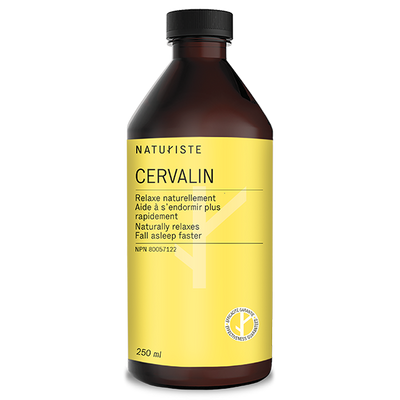Brain Awareness Week !
Brain awareness week
From March 14th to March 20th 2022

Around the world, Brain Week is celebrated annually during the third week of March. It is designed to generate public interest and support for brain research. Do you know the human brain has 100 billion neurons?
Neurons are the carriers of information between different parts of the brain, and we still have a lot to discover and learn about the human brain! We can better understand our biology and how our bodies work through brain research, allowing health professionals to prevent or treat brain, nervous system and body disorders.
The key to maintaining a healthy brain is maintaining it in top condition while minimizing risks as you age. Studies have shown that the choices you make to keep your body healthy can also benefit your brain. Making healthy choices will help protect the brain, make it easier to adapt to changes associated with aging, and reduce the risk of dementia.
Maintain your brain's full potential by taking steps to keep it active. You can never be too young or too old to start taking care of your head!
In Canada :
- 78,600 new cases of dementia are diagnosed each year in people 65 years and older;
- 63% of these people are women;
- Every hour, approximately 9 seniors are diagnosed with dementia;
- The family or friends of a person with dementia spend about 26 hours a week caring for them.
Keep your heart healthy : A healthy heart is also a healthy brain
Oxygen and nutrients are transported to the brain through a healthy heart and blood vessels. Diseases of the heart and circulatory system increase the risk of dementia.
If you smoke and drink heavily, your chances of developing heart disease and stroke increase. There are many health problems related to smoking, including lung, heart, and blood pressure problems. Drinking heavily for an extended period of time can damage the brain and increase dementia risk.
Let's get moving : Exercise is just as important for your body as it is for your brain
You should move throughout the day and participate in planned activities, such as exercise classes. Aside from the numerous health benefits, physical activity is fantastic for your brain. Getting up and moving:
- Boosts blood and oxygen supply to the brain;
- Enhances memory and learning;
- Promotes the creation of new brain cells and the connections between them
Maintain a healthy diet : It is good for your heart and brain to eat well.
Healthy foods give your brain the nutrients and energy it needs to function, but this is only possible if your heart and blood vessels are healthy. Healthy eating can help prevent and treat diseases such as high blood pressure, high cholesterol, diabetes, obesity, and some cancers.
Put your brain to the test : Brains are easily bored; they are most effective when confronted with new challenges
As you age, new experiences help maintain memory, thinking skills, attention, and logic. Studies have shown that stimulating the brain with new activities helps create new neurons and connections.
People often use cognitive computer games, sudoku puzzles, and crossword puzzles to sharpen their minds. There is, however, not enough evidence to conclude that these activities improve brain health or reduce dementia risk. You don't have to give up these games, but you might find it better to try other activities as well.
How you can challenge your brain
- Learn new things often and challenge yourself;
- Learning a new language, reading, taking art classes, playing an instrument;
- Become a volunteer or mentor;
- Make a change in your routine;
- Trying something you've never done before, such as a new sport or hobby;
Make sure you get a good night's sleep : During the day, your brain works hard, but at night it needs to rest
You cannot be at your best when you don't sleep: your mood, memory, and concentration suffer. Your brain needs sleep in order to:
- Expel toxic substances;
- Resolve issues;
- Analyze the day's events;
Sleep becomes less deep as we age, and we awaken more frequently. Nonetheless, seniors need seven to eight hours of sleep every night, even if it is interrupted.
How you can improve your sleep
- In a 24-hour period, get seven to eight hours of sleep. Napping counts;
- Establish a bedtime routine;
- Maintain a regular sleep cycle by getting up at the same time every day;
- Ensure that your bedroom is dark, quiet, and at a comfortable temperature;
- Screens (TV, tablet, phone) should be avoided in the bedroom and one hour before bedtime;
- Relaxation techniques can be helpful;
- Regularly engage in physical activity;
- Natural light exposure, especially early in the morning. Your body clock and sleep cycle will be reset;
- If you are having trouble sleeping, do not immediately turn to medication. Try other things first, like taking a warm bath, using aromatherapy, or taking NATURAL supplements, like Cervalin.
Supplements to support brain health !
Super-omega 3
Brain Plus
Neuro PS
*All this information was taken from the Ottawa and Quebec public health websites





Leave a comment